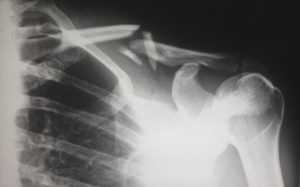After your arraignment and “before a criminal case goes to trial, the prosecutor and the defense team usually appear before a criminal court judge and make pre-trial motions — arguments that certain evidence should be kept out of the trial, that certain persons must or cannot testify, or that the case should be dismissed altogether.
Pre-trial motions are tools used by the government and the defense in an effort to set the boundaries for trial, should one take place: What physical evidence and testimony can be used? What legal arguments can and cannot be made? Is there any reason that the defendant should not be forced to stand trial?
Learn more about pre-trial motions and how they’re used below.
What Arguments are Made During Pre-Trial Motions?
While specific possibilities are endless, following are some examples of pre-trial motions that might be made in a criminal case:
- In a drug possession case, the defense asks the judge to “exclude,” or keep out of the case, drug paraphernalia that the defense argues was obtained through an illegal search of the defendant’s apartment.
- The defense argues that the defendant’s confession should be excluded, because it was made in response to questions from a police officer who failed to first read the defendant his Miranda rights.
- The prosecutor argues that one of the defendant’s key witnesses, an elderly neighbor with Alzheimer’s disease, is not legally competent to testify and should be excluded as a witness at trial.
- The defense asks the judge to dismiss the case against the defendant altogether, arguing that the police did not have “probable cause” to arrest the defendant in the first place, or that insufficient evidence exists for any reasonable jury to find the defendant guilty.
Various Types of Pretrial Motions
The importance of the pre-trial motion depends on the kind of case, the severity of the charges, the strength of the prosecution’s case, and other factors. A successful pretrial motion can profoundly change the course of a trial if used effectively. Some of the most common such motions include the following:
- Summary Judgment – The facts of the case are not in dispute, so the court orders a judgment without a full trial.
- Motion to Dismiss – The case should be dismissed because of lack of jurisdiction, lack of evidence, settlement before trial, or other reasons.
- Exclusion of Physical Evidence – Evidence may have been obtained illegally or beyond the scope of a search warrant.
- Exclusion of Witness Testimony – There could be a conflict of interests, the witness could be unreliable, lack competency, etc.
- Motion to Change Venue – This may be awarded in cases (particularly those that are heavily publicized) where the jury pool may be prejudiced against the defendant.
- Motion for the Release of Evidence – There may be evidence being held by the prosecution that is materially important to the defense.“
* For a full version of this article click here.








